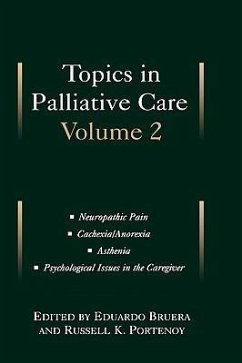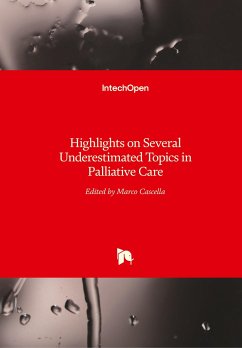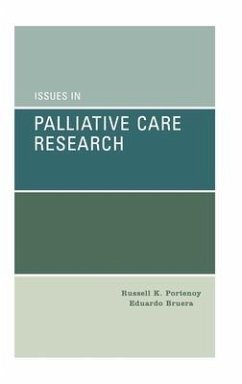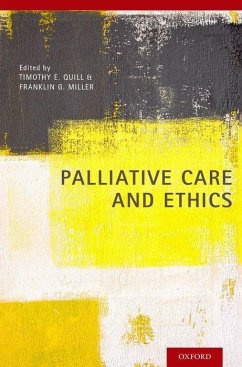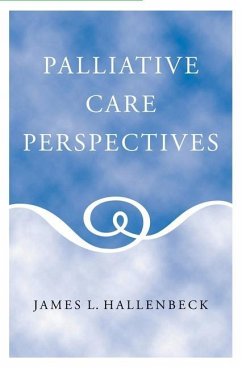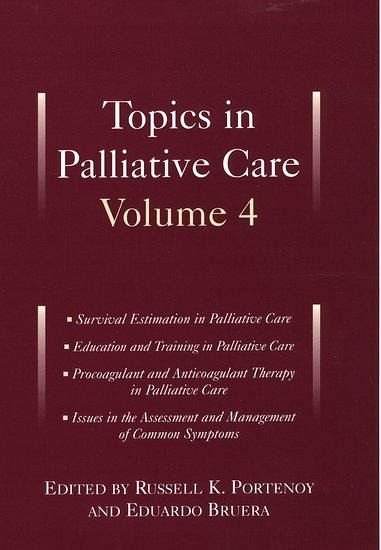
Topics in Palliative Care
Volume 4
Herausgeber: Portenoy, Russell K.; Bruera, Eduardo
Versandkostenfrei!
Versandfertig in 1-2 Wochen
62,99 €
inkl. MwSt.

PAYBACK Punkte
31 °P sammeln!
This is the fourth book in a series devoted to research and practice in palliative care. This rapidly evolving field focuses on the management of phenomena that produce discomfort and undermine the quality of life of patients with incurable medical disorders. To highlight the diversity in this field, each volume is divided into sections that address a range of issues. Various sections discuss aspects of symptom control, psychosocial functioning, spiritual or existential concerns, ethics, and other topics. The four sections in this volume are; Survival Estimation in Palliative Care, Education a...
This is the fourth book in a series devoted to research and practice in palliative care. This rapidly evolving field focuses on the management of phenomena that produce discomfort and undermine the quality of life of patients with incurable medical disorders. To highlight the diversity in this field, each volume is divided into sections that address a range of issues. Various sections discuss aspects of symptom control, psychosocial functioning, spiritual or existential concerns, ethics, and other topics. The four sections in this volume are; Survival Estimation in Palliative Care, Education and Training in Palliative Care, Procoagulant and Anticoagulant Therapy in Palliative Care, and Issues in the Assessment and Management of Common Symptoms. The authors present and evaluate existing data, provide a context drawn from both the clinic and research, and integrate knowledge in a manner that is both practical and readable.





